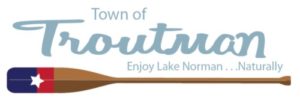
BY DEBBIE PAGE
debbiepage.iredellfreenews@gmail.com
The Troutman Planning and Zoning Board elected new officers, completed its annual adoption of its rules of procedure, and recommended removal of a part of the Unified Development Ordinance criminalizing certain violations to meet requirements of changes to state statutes.
The board also recommended a text amendment regulating commercial accessory buildings and received updates on several projects recently appearing before the board.
Randy Farmer was re-elected chair of the board and Karen Van Vliet selected again as vice chair. The board also readopted without revision its Rules of Procedure, created last March to meet new state statute 160D.
The rules define the board’s roles and duties, including preparing and recommending comprehensive plans, engaging citizens in the planning process, and developing and recommending policies, ordinances, regulations, and procedures related to carrying out the town’s plans efficiently.
The board also advises the Town Council on zoning text and maps, provides a preliminary forum for reviewing quasi-judicial decisions, and performs any duties the Town Council directs.
The new rules also require board members to take an oath of office before joining the board.
DECRIMINALIZATION OF ORDINANCES
Senate Bill 300, passed by the N.C. General Assembly in August, requires towns to decriminalize certain ordinances relating to planning and regulation of development under Chapter 160D.
Since Troutman’s current Unified Develop Ordinance, in Article 12.3.1, has language making some violations of the UDO a misdemeanor, punishable by a fine and/or a prison term of up to 120 days, the town must take steps remove this article from its UDO to conform to state law.
Instead of issuing criminal charges, the town has the authority to pursue civil penalties to enforce violations of the UDO.
The board voted unanimously to recommend this change to the Town Council for consideration.
NEW COMMERCIAL ACCESSORIES REGULATIONS RECOMMENDED
The board also approved language that sets standards and regulations for commercial accessory buildings, sending its recommendation on to Town Council for final consideration.
Several months ago Town Planner Lynne Hair received a recommendation from the Design Review Board to set standards for commercial accessory structures after discovering the current UDO only addresses residential accessory structures.
The omission came to light when the town received two commercial accessary building applications in 2021 and presented them to the Design Review Board, which the UDO specifies must approve all non-residential structures.
Because the UDO had no guidance for the Design Review Board to follow, the board directed staff to create a text amendment regulating commercial accessory structures, focusing on the structure’s location but allowing flexibility on aesthetics.
The language dictates nothing about the size or number of structures allowed because the Design Review Board members wanted to leave business owners the flexibility to do what they needed to run their businesses.
Hair said if the language is ultimately adopted by Town Council, a business owner could build an accessory building as big as the original one if it met rear setback requirements.
She also added that if the structure requires a building permit, the process would be more involved, but if an accessory structure is just moved to the property site, the business owner only has to submit a sketch to the town to ensure its placement meets setback requirements.
The proposed amendment forbids accessory buildings in front of a business but does allow fences up to four feet in the front setback. These buildings are also not allowed within side setbacks, but up to eight-foot fences are allowed within the side setback.
Accessory buildings would be allowed behind principal structures but cannot be closer than 15 feet from the rear property line or meet the required rear property buffer, whichever is greater. However, fences up to eight feet in height would be permitted within rear setbacks.
The types of fencing required in any of these instances is covered in another ordinance.
The recommended language also forbids accessory buildings to be taller than the primary structure and does not allow heat pumps, air conditioners, emergency generators, or water pumps in front setbacks, although they are allowed in rear or side setbacks if they are less than 48 inches in height.
PROJECT UPDATES
Though Wagner Street Townhomes was denied by both the Planning and Zoning Board and the Town Council, Hair told board members that the developer has filed an appeal, to which the town attorney has responded. Both parties are currently awaiting a judge’s ruling.
Hair said a lawsuit had not been filed.
The Hemi Drive Townhome project was withdrawn after the Wagner Street Townhomes project was denied. The property has been sold to another owner, who currently plans to develop it under the current single-family home zoning.
Hair also noted that Winecoff Village, Rocky Creek, Honeycutt, and Lytton Townhomes residential projects and the Troutman Logistics commercial projects were all approved by Town Council.
Board members also learned that the Rocky Creek developer has acquired 20 additional adjoining acres for a phase 2 cluster development of 56 single-family homes. The staff had a community meeting on January 27 for residents in the area to hear more about the project, which will next appear before the Planning and Zoning Board.
The developer is requesting a conditional zoning district, with rezoning changing from its current suburban residential and heavy industrial designation to a conditional zoning-mixed residential district.
ETHICS TRAINING
Ethics training is being arranged for Planning and Zoning Board members this spring. They will have the choice to attend either online or i-person sessions to accommodate their employment schedules.
An ethics policy for the board is also coming for their review. The Town Council is required by state statute to have an ethics policy to follow, and Town Attorney Gary Thomas recommends that all boards under the Town Council follow suit.



